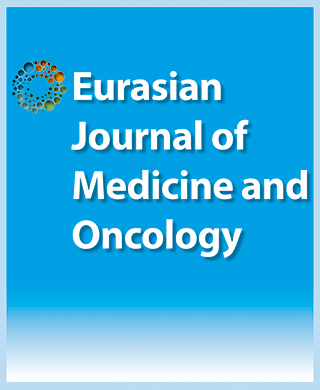

Flowcytometric Analysis of Leukemic Blasts - as Primary Screening Test for BCR/ABL1 Gene Rearrangement in B- ALL
Birva Raiya1, Hemangini Vora1, Pina Trivedi2, Biren Parikh31Division of Immunohistochemistry and Flowcytometry, Gujarat Cancer and Research Institute, Gujarat, India, 2Division of Cell Biology, Gujarat Cancer and Research Institute, Gujarat, India, 3Department of Pathology, Gujarat Cancer and Research Institute, Gujarat, India,
Objectives: Philadelphia chromosome (Ph) is common cytogenetic abnormality in B-ALL. Patients with Ph-chromosome have resistance to chemotherapy treatment with shorter event free survival, however, tyrosine kinase inhibitor (imatinib mesylate) has shown to improve the survival of Ph-positive ALL patients. The aim of the study was to examine immunophenotypic profile associated with BCR/ABL1 gene rearrangement and to put forward a model for gene rearrangement based on immunophenotypic analysis at diagnosis. Methods: We had carried out a retrospective analysis of 130 patients with B-ALL diagnosed at The Gujarat Cancer and Research Institute. Immunophenotyping of leukemic blasts was carried out using flowcytometry and BCR/ABL1 fusion gene was detected by FISH analysis. Results: BCR/ABL1 fusion was observed in 24% of B-ALL. All patients with BCR/ABL1 gene rearrangement were positive for CD10 and Tdt. BCR/ABL1-positive cases exhibited a greater MFI value of Tdt, CD10, CD34, CD13, CD33, but a lower MFI value of CD22, CCD79a as compared to BCR/ABL1 negative cases. Multivariate logistic regression analysis showed that high MFI of Tdt, CD10 and low MFI of CD22 and CCD79a predict the presence of BCR/ABL1 rearrangement. Conclusion: Immunophenotypic profile of B-ALL patients can be used as primary screening to predict occurrence of BCR/ABL1 gene rearrangement. Keywords: B ALL, BCR/ABL1 gene rearrangemnt, flowcytometric immunophenotyping
Cite This Article
Raiya B, Vora H, Trivedi P, Parikh B. Flowcytometric Analysis of Leukemic Blasts - as Primary Screening Test for BCR/ABL1 Gene Rearrangement in B- ALL. EJMO. 2019; 3(3): 191-198
Corresponding Author: Hemangini Vora



